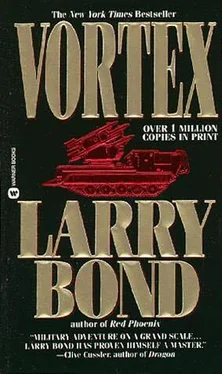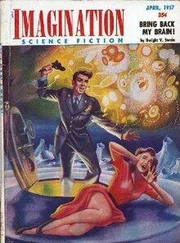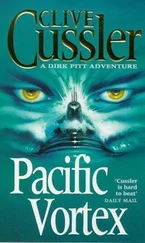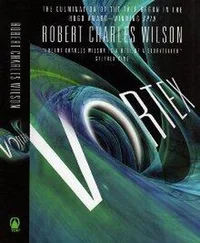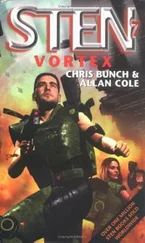The Mirage shuddered slightly as it punched through a whirl of disturbed air. He checked his instruments again.
His speed was good and he was still on course. In a useless gesture,
Heersfeld tightened his straps and settled himself in the seat. Reaching over to the weapons panel, he selected CENTERLINE and watched the gauges.
Now!
In a carefully practiced motion, he pulled back on the stick, pulling his plane up into a loop. The Mirage’s nose snapped up toward the zenith.
Needles spun round on the aircraft’s altimeter as it thundered high into the dark night sky.
At seventy-seven hundred meters, eleven hundred kilometers per hour indicated airspeed, on a course of two seven five degrees magnetic and at a forty-five-degree angle, Heersfeld stabbed the release button on his control stick. He felt a solid thump under the aircraft as the bomb separated cleanly he hoped.
The mission was out of his hands now, and it was high time he looked after Jon Heersfeld’s immediate future. He pushed the throttle all the way forward and yanked back on the stick, even harder than before. The
Mirage roared upward and over, finishing the loop-inscribing a vertical semicircle through the air.
At ten thousand meters, the plane’s nose passed the horizon and kept going. He was upside down now, hanging from his straps staring “up” at the earth below.
Heersfeld quickly rolled from inverted to wings-level in a steep dive and watched his airspeed indicator climb higher. He was already moving at over Mach one, and he intended to wring every possible ounce of speed out of his old mount.
Behind him, the bomb traveled through its own arc.
THIRD BRIGADE TACTICAL GROUP
Sergeant Jimenez counted down as the lone South African aircraft approached.
“Fourteen kilometers. Twelve kilo meters. Ten kilometers. Ten kilometers!” He sat up straighter, staring at the screen.
“It’s turning away! Range is now twelve kilometers. Comrade
Lieutenant, the other aircraft is turning away, too! “
His eyes followed the blips as they moved blinking toward the top of his radar scope. His outstretched finger slid away from the fire button next to his console. It looked as though the South Africans weren’t going to test the accuracy of his missiles-not tonight at any rate.
Jimenez had never seen a “lob-toss” delivery on his scope before. He’d never get another chance.
Too small to be picked up by radar, the South African bomb arched up to twelve thousand meters before descending in a gentle curve across the ten kilometers between its release point and target.
After fierce debate, Pretoria’s mission planners had picked the Cuban T-62 tank battalion as their primary target. Ordinarily, two battalion strong points could have been included in the bomb’s inner kill zone, but the tanks represented most of the Third Brigade Tactical Group’s combat power. The planners were willing to accept “minimal” damage to the rear of the column in order to guarantee destruction of the Cuban armor.
As the weapon fell earthward, a pressure fuse sensed its passage through the one-thousand-meter mark and closed a switch. Thousandths of a second later, it ceased to be.
Counting both vertical and horizontal distance, the bomb had traveled almost sixteen kilometers in its arc, totally unguided. While Heersfeld’s delivery had been within norms, high-altitude winds and pressures had changed the tiniest bit since the last reading. As a result, South Africa’s twenty kiloton atomic bomb fell slightly off target-three hundred meters long and to the right.
Fused for airburst, it detonated over and just outside the northwest edge of the tank battalion’s laager. A boiling, white-hot fireball, more than two hundred meters in diameter, speared through the night-turning darkness into flickering, manmade day for several deadly seconds.
Anyone who could see it clearly died instantly. Heat and radiation raced outward from the detonation point at the speed of light, and troops who weren’t under some sort of cover suffered second-degree burns, their skin blistered and reddened wherever they’d faced the fireball.
Inside five hundred meters from the fireball, though, men suffered third-degree burns as their clothing and hair smoked and then caught fire in the intense, blood-boiling heat. Half a second later, a roaring pressure wave arrived, ending their agony. The shock wave crushed lungs, picked men up bodily, and tossed them through the air. Simply being shielded from the radiant heat and radiation couldn’t save the Cuban tank crews. Most struck a hard object at high speed and died instantly.
The tanks themselves were “hard” targets, able to resist massive overpressures before their armored bodies were broken, but the intense heat ignited external fuel drums, paint, and in many cases, even the ammunition stored inside. Multiple blasts shattered armored vehicles that were already on fire. Any that were broadside to the blast were scooped up by the wall of dust, gases, and debris and literally rolled and tumbled along the ground.
Sergeant Jimenez’s SAM carrier sat near the head of the brigade column, only five hundred meters from ground zero. His vehicle was much easier to kill than a tank.
First, the electromagnetic pulse spreading outward with the bomb’s heat and radiation knocked the launcher’s electronics out-showering Jimenez, the lieutenant, and the rest of his crew with sparks. At the same time, its
SA-8 missiles started cooking off in their launch tubes-set off by the intense heat. But that took several tenths of a second, and by the time the missiles began exploding the pressure wave arrived.
The shock wave tore the fragile radars and missile launcher right off the vehicle’s chassis and then crushed the flimsy steel body with the men still inside. Jimenez and the others were already dead.
The shock wave kept going-expanding outward in an ever-widening, ever-deadly circle.
The brigade tactical group’s T-62 tanks were low, squat,
heavily armored targets, but its BTR-60 personnel carriers were actually designed to float and had much more surface area. The nearest infantry battalion, within a thousand meters of the fireball, had its troop carriers pulverized and flung like shattered toys through the air. Anyone who’d gained momentary shelter from the blast inside the vehicles died quickly.
The next battalion was only five hundred meters farther back, but that was far enough to halve the force of the shock wave. A few heavy engineering vehicles survived intact, but its boxy personnel carriers and unprotected infantrymen still suffered crippling losses.
Next came the Cuban artillery, three batteries of 122mm self-propelled guns. At this distance, the blast flipped over howitzers, command vehicles, and ammo carriers that were facing the wrong way. Sights and other delicate instruments were stripped off or smashed. It also scattered the ammunition of the one battery deployed and ready to fire.
Shells stacked near the guns began exploding.
Only the men of the trailing battalion had any real chance to survive.
Troops who were asleep in their APCs or who’d dug a little deeper than the rest were screened from the first deadly flash of heat and radiation.
They woke up to see an angry ball of fire rising skyward more than three kilometers away. Anyone who didn’t duck immediately suffered painful burns.
And then the shock wave hit them-buffeting and blasting BTR-60s with pressures still strong enough to knock over an ordinary house. Debris rained down on the helpless Libyan soldiers-man-killing pieces of rocks, boulders, trees, and torn, twisted, and smoldering metal.
The two forward battalions in the Third Brigade Tactical Group were wiped out in one swift, merciless moment. The middle two battalions lasted only five seconds longer. Ten seconds after the South African fission bomb went off, the brigade’s fifth and final motor rifle battalion lay shattered in its debris-choked laager.
Читать дальше
